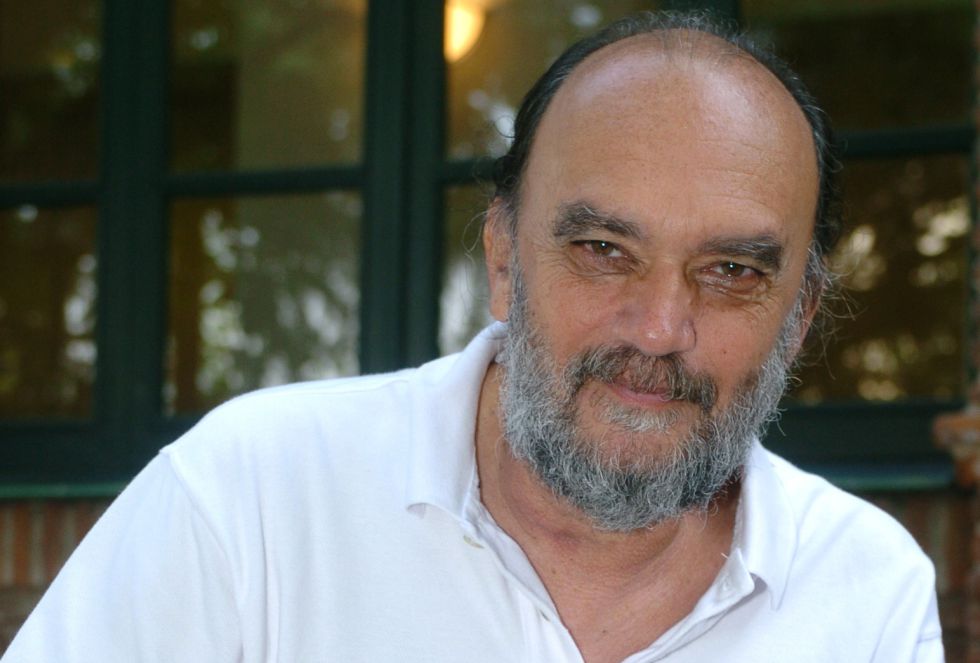Rosário (Argentina), 1944 – 2007
By Graciela Hopstein
 Roberto “El Negro” Fontanarrosa was one of the most well-known and respected humorists and cartoonists in Argentina. Passionate about football, women, politics, and café conversations, Fontanarrosa famously stated that he simply wanted to make people laugh: “I don’t aspire to the Nobel Prize in Literature. I feel well compensated when someone approaches me and says: I laughed so hard with your book.”
Roberto “El Negro” Fontanarrosa was one of the most well-known and respected humorists and cartoonists in Argentina. Passionate about football, women, politics, and café conversations, Fontanarrosa famously stated that he simply wanted to make people laugh: “I don’t aspire to the Nobel Prize in Literature. I feel well compensated when someone approaches me and says: I laughed so hard with your book.”
After a brief stint in advertising, he fully dedicated himself to humor, publishing his first cartoon in 1964 in the magazine Boom. In 1971, during the height of James Bond films, he introduced one of his best characters, Boogie, el aceitoso (Boogie, the greasy one), in the magazine Tinta, parodying the famous secret agent. The following year, Hortensia was launched, marking a significant moment in Argentine comics, featuring great cartoonists like Caloi, Brócoli, Crist, and Ian. In this publication, two of his most famous characters developed: Inodoro Pereyra, the “renegau” (a play on the word “renegade”), and Boogie. The former is a disheveled, ill-tempered gaucho living in the pampas with his wife, Eulalia, and their dog, Mendieta, serving as a parody of Argentine folklore. The latter, a ruthless, misogynistic, sarcastic, and racist American mercenary, embodies the worst of humanity with acidic humor. Two worlds, two completely different characters that reflect the intelligence and sensitivity of their creator.
In 1972, he published ¿Quién es Fontanarrosa?, his first book. As comics gained prestige, new publishing opportunities arose, and in 1973, Fontanarrosa began contributing to the back cover of El Clarín, Argentina’s most widely circulated newspaper, alongside other prominent cartoonists such as Viuti, Tabará, and Altuna.
Starting in 1981, he began publishing novels and short stories, including titles like Best Seller, El área 18, El mundo ha vivido equivocado, No sé si he sido claro, Nada del otro mundo, Uno nunca sabe, El mayor de mis defectos, La mesa de los galanes (which immortalizes conversations at the El Cairo bar), and La gansada. In 1984, he collaborated with the magazine Fierro, where he published his Semblanzas deportivas and the adventures of Sperman, a sperm donor.
Fontanarrosa also collaborated with the group Les Luthiers and was hired by El Clarín to comment on the Argentine national football team’s matches during the 1994 World Cup in the United States, bringing to life Hermana Rosa, a fortune-teller who predicted the outcomes.
Irreverent, prolific, and deeply Argentine, Fontanarrosa became a reference point for several generations of Latin American cartoonists. He passed away on July 19, 2007, in his hometown. In 2014, the Argentine Congress established November 26, Fontanarrosa’s birthday, as National Humorist Day.



